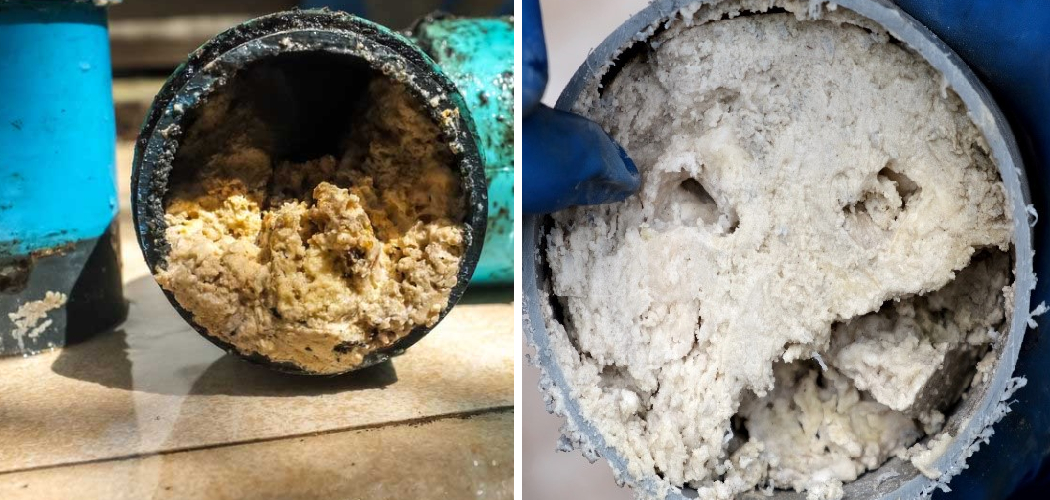Dealing with a clogged drain can be a frustrating and messy experience, especially when it’s caused by grease buildup. Grease, oil, and fats that accumulate in drains can cause blockages, leading to slow drainage or even complete clogs.
However, unclogging a grease-filled drain doesn’t have to be a daunting task. In this article, we will provide you with practical and effective methods on how to unclog grease from a drain.
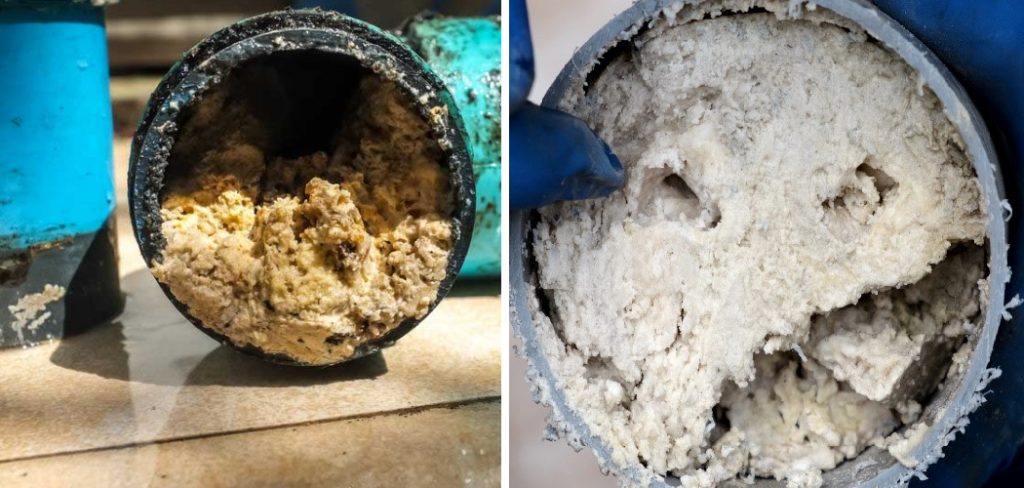
From using natural ingredients to specialized tools, we will explore a range of techniques that can break down and remove stubborn grease deposits, restoring proper flow to your drain. Say goodbye to standing water and unpleasant odors, and get ready to tackle the grease clog head-on, so you can enjoy a smoothly flowing drain once again.
Importance of Maintaining a Clear and Functioning Drain
Having a clogged drain can be an annoying problem for the homeowner. Not only is it inconvenient, but it can also cause considerable damage to your plumbing system. Grease buildup is a common cause of clogs in drains, and unclogging grease from a drain requires specialized techniques. It’s important to understand how to do this properly so that you can maintain a clear and functioning drain.
The primary reason for unclogging a clogged up drain is to prevent it from becoming completely blocked and unable to be used by your family. When left unchecked, grease buildup can cause severe damage to the pipes in your home due to corrosion and bacteria growth.
If this happens, you may face costly repairs or even have to replace your entire plumbing system. Additionally, clogs can leave standing water in the pipes which can lead to nasty odors and the growth of mold and mildew inside your home.
Taking the necessary steps to ensure that drains are clear of debris and grease buildups will help keep them functioning properly for many years. This includes regularly performing maintenance tasks such as using an appropriate cleaner, running hot water down the drain, and using a plunger to break up any blockages.
If these methods don’t work, you may need to use more specialized techniques in order to unclog grease from a drain. Doing so will help prevent costly repairs and ensure that your plumbing system remains functioning properly.
The Specific Challenge of Grease Clogs
Grease is one of the most common causes of drain clogs, but it can be difficult to unclog. Grease is a slippery substance, so it can easily cling to the walls of drain pipes and build up into a large clog. In addition, hot grease solidifies as it cools, which means that even if you manage to temporarily clear away some of the grease, more will accumulate in the future.
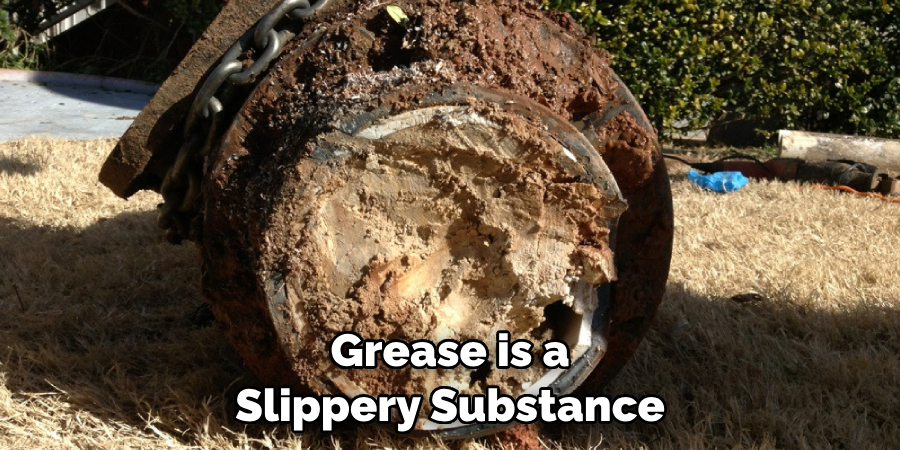
Fortunately, there are several techniques you can use to unclog your drain from grease buildup. One popular option is to use baking soda and vinegar. By combining these two ingredients together in equal amounts, you can create a powerful cleaning solution that effectively breaks down grease buildup.
Another option is to use a commercial enzyme-based cleaner specifically designed for removing organic material like grease. This type of cleaner works by breaking down fats and proteins into smaller molecules that can be easily flushed away.
Finally, you may want to consider using a manual tool like a snake or auger to physically break up the clog. These tools are designed to reach deep into your drain pipe and help clear away stubborn grease buildup. It is important to use caution when using these tools, however, as they can cause damage to your pipes if used incorrectly.
With patience and careful consideration of all available options, you can effectively unclog grease from your drain and restore it back to its normal function. By following the steps outlined above, you’ll be able to tackle this common plumbing issue with ease.
Understanding Grease Clogs
Grease is a major culprit when it comes to clogged drains. Grease becomes solidified after being washed down the drain, and can quickly accumulate and form a blockage in the pipes. This blockage will reduce water flow, resulting in slow draining or even complete stoppage of drainage.
If you’ve noticed a decrease in your drainage speed, it’s time to take action and unclog that grease before it causes more issues. Here are some tips on how to effectively remove grease from a drain without damaging the pipes or having to call a plumber.
The first step in unclogging grease from a drain is understanding why this happens in the first place. Grease accumulates due to its insoluble nature in water. When grease is poured down the sink, it coats the inside of your pipes and solidifies as it cools. This can form a thick layer of gunk that will clog up your pipes.
To make sure you don’t have to deal with future grease buildup, avoid pouring any fat, oil or greasy substances down your drains. If you must do so, make sure the drain is flushed more than once with hot water to reduce buildup. Additionally, clean out the trap under your sink regularly to remove any built-up grease before it becomes an issue.
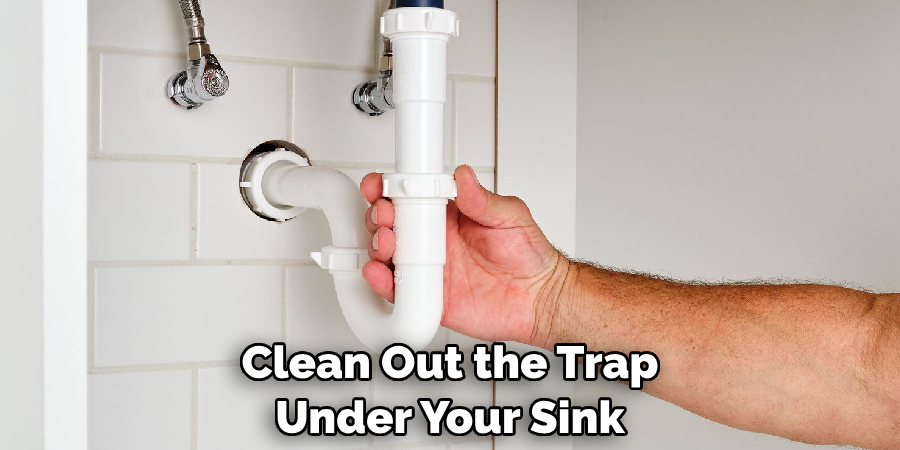
With these tips in mind, you can now tackle unclogging grease from a drain if needed. The next step is to determine which method is the right one for you.
10 Methods How to Unclog Grease from a Drain
Method 1: Boiling Water
Start with the simplest and most common method—boiling water. Boil a pot or kettle of water and carefully pour it down the drain in three stages, allowing a few seconds between each pour. The hot water can help melt and flush away the grease buildup. Give it a few minutes to work before continuing with another method.
Method 2: Baking Soda and Vinegar
Combine equal parts baking soda and vinegar to create a natural and foaming drain cleaner. Pour this mixture down the drain and let it sit for about 30 minutes. Then, flush the drain with hot water to remove the dissolved grease.
Baking soda and vinegar are effective at removing greases from drains, but it may take multiple applications to completely remove the clog. Additionally, this method may not work on very large clogs.
Method 3: Salt and Hot Water
Sprinkle a generous amount of table salt down the clogged drain, followed by pouring hot water. The abrasive nature of salt can help break up the grease, while hot water aids in flushing it away.
Method 4: Dish Soap and Hot Water
Squirt a few tablespoons of dish soap into the drain and pour hot water over it. Let it sit for a few minutes, allowing the soap to penetrate the grease. Follow up with more hot water to rinse away the loosened grease.
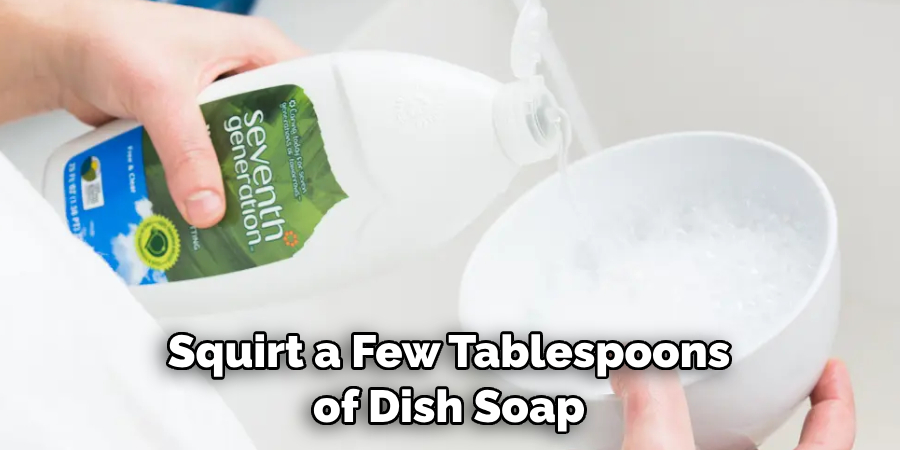
Method 5: Enzyme Cleaners
Enzyme-based drain cleaners can effectively break down organic matter like grease. Purchase a commercial enzyme cleaner specifically designed for drains, follow the instructions on the packaging, and give it some time to work its magic.
Method 6: Plunger
If the clog is stubborn, a plunger can be an effective tool. Make sure there is enough water in the sink to cover the rubber part of the plunger. Create a tight seal around the drain and vigorously plunge up and down to dislodge the grease.
Method 7: Plumbing Snake
For more challenging clogs, a plumbing snake or drain auger can be useful. Insert the snake into the drain and rotate it while pushing it forward. This action helps break up the grease and allows you to pull it out or push it further down the drain. Be sure to use caution when using a plumbing snake, as it can be dangerous if mishandled.
Method 8: Wet/Dry Vacuum
If you have a wet/dry vacuum, you can use it to remove the clog. Set the vacuum to the wet mode, cover the vent to create a seal, and place the hose directly over the drain. The vacuum’s suction can pull out the grease clog.
Method 9: Hydro Jetting
For severe grease clogs, professional hydro jetting may be required. This process involves using high-pressure water to blast away the grease buildup. Contact a licensed plumber who specializes in hydro jetting for assistance.
Method 10: Preventive Measures
To avoid future grease clogs, practice preventive measures. Avoid pouring grease, oil, or fats down the drain and instead collect them in a separate container for proper disposal. Regularly flush your drains with hot water and use enzyme cleaners periodically to keep them clear.
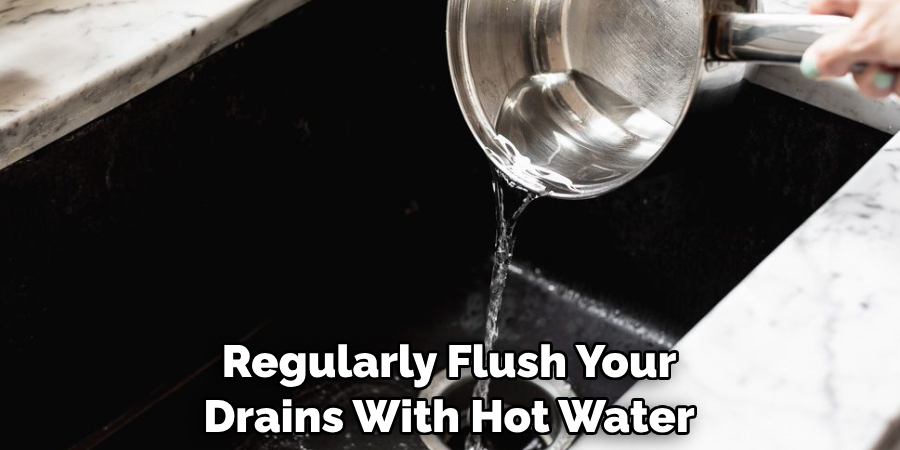
Conclusion
All in all, unclogging grease from a drain is not only easier than you may think, it can also be performed at home with relative ease. As long as you have the right tools and know the steps to take, you should be able to successfully unclog the grease without any real difficulty.
Above all else, if you feel any form of trepidation about trying to repair your own sink issues yourself, always ensure to contact a professional plumber for help before attempting any more extensive repairs. So now that we’ve gone over how to unclog grease from a drain in depth — let’s get tidying!

